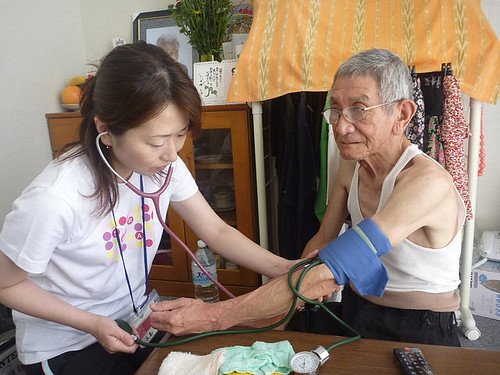 assisted living facilities
assisted living facilities
In recent years, the demand for home care services has surged as more individuals seek alternatives to institutionalized care settings. As a result, the affordability and accessibility of home care have become pressing concerns for seniors and their families. Understanding the availability of financial assistance programs for home care is crucial in navigating the complexities of long-term care options.
Context and Relevance
The rising cost of healthcare, coupled with the aging population, has brought attention to the need for financial support for home care services. Many seniors prefer to age in place, receiving care in the comfort of their homes, but the expenses associated with home care can be prohibitive for some. Consequently, there has been a growing emphasis on exploring and expanding financial assistance programs to ensure equitable access to home care services for those in need.
Implications and Impact
Financial assistance programs for home care can have significant implications for society, the healthcare industry, and individuals. By providing support for home-based care, these programs promote independence, improve quality of life, and may reduce overall healthcare costs by preventing or delaying institutionalization. Moreover, they address equity concerns by ensuring that individuals with limited financial resources can access essential care services.
Challenges and Considerations
One of the main challenges in accessing financial assistance for home care is the complexity of eligibility criteria and application processes. Additionally, funding limitations and budget constraints may restrict the availability of these programs, leading to disparities in access to care. Ethical considerations also arise regarding the allocation of limited resources and the prioritization of certain populations for assistance.
Future Developments
Future developments in financial assistance for home care may involve efforts to streamline eligibility criteria, enhance program outreach and education, and increase funding to meet growing demand. Policymakers, healthcare providers, and advocacy organizations play crucial roles in advocating for and implementing policies that support affordable and accessible home care for all individuals.
Case Studies or Real-world Applications
Consider the case of Maria, a senior living on a fixed income, who requires assistance with daily activities due to mobility issues. Through her state’s Medicaid waiver program, Maria qualifies for home care services at no cost to her, allowing her to remain independent in her own home with the support of a caregiver.
Conclusion
In conclusion, financial assistance programs for home care are vital resources for seniors and families facing the financial burden of long-term care. While challenges exist in navigating eligibility and funding limitations, ongoing efforts to expand access to these programs are essential for promoting equity and ensuring that individuals can age with dignity in their preferred setting.
Q&A Section
- What types of financial assistance programs are available for home care?
- Financial assistance programs for home care include Medicaid waivers, Veterans Affairs benefits, long-term care insurance, state-funded programs, and community-based grants or subsidies.
Source
- How do I know if I or my loved one qualify for financial assistance for home care?
- Eligibility criteria for financial assistance programs vary depending on factors such as income, assets, age, disability status, and medical need. It is advisable to contact the relevant agencies or organizations administering the programs for specific eligibility requirements.
Source
- Are there resources available to help with the application process for financial assistance programs?
- Yes, many community organizations, non-profit agencies, and senior advocacy groups offer assistance with navigating the application process for financial assistance programs. Additionally, healthcare providers and social workers may provide guidance and support.
Source
- What should I do if I am unable to afford home care services even with financial assistance?
- If you are unable to afford home care services even with financial assistance, consider exploring alternative care options such as subsidized housing, adult day programs, or respite care services. Additionally, consult with social workers or case managers to explore additional resources and support options.
Source
- How can I advocate for improved access to financial assistance programs for home care in my community?
- You can advocate for improved access to financial assistance programs for home care by contacting policymakers, participating in advocacy campaigns, joining community organizations focused on senior issues, and sharing your experiences and concerns with elected officials and policymakers.
Source
For personalized assistance in exploring financial assistance options for home care, please fill out our form, and a specialist will reach out to you.
Need help? Let us know how we can match you.
